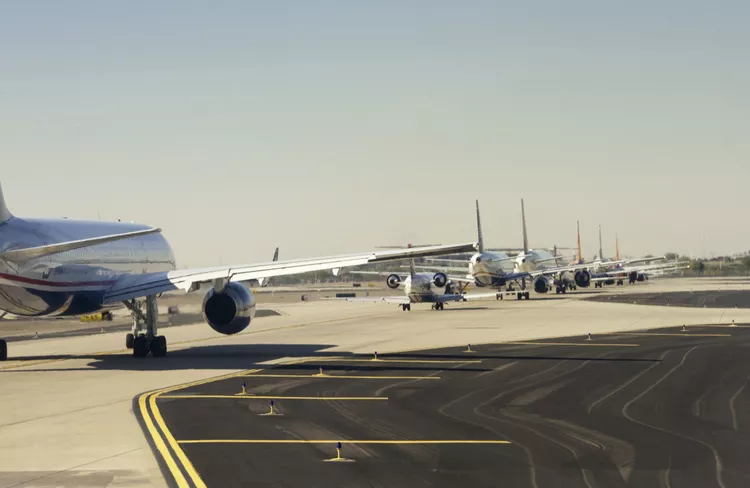Summary of Phoenix Sky Harbor Airport and High Temperatures
3400 Sky Hbr Blvd, Phoenix, AZ 85034, USA
Phone +1 602-273-3300
Impact of High Temperatures on Flights
It is not unusual for temperatures in Phoenix to soar above 100°F during the summer months. However, when air temperatures exceed 115°F, one may wonder if Sky Harbor Airport cancels flights. This concern calls for a deeper exploration of how extreme heat influences flight operations.
Historical Instance of Flight Cancellations
On June 26, 1990, Phoenix recorded an unprecedented high temperature of 122°F. During this historic heatwave, airlines at the airport suspended takeoffs and landings temporarily, as they lacked the necessary performance charts for such extreme conditions. Subsequently, airlines updated their data and resumed flight operations. Today, takeoffs and landings would not be halted even if temperatures reached 122°F, thanks to these updated performance charts.
When temperatures and humidity rise, they contribute to decreased air density, which in turn affects an airplane’s lift capability. Consequently, aircraft require more runway length to take off safely. In response to these challenges, the longest runway at Phoenix Sky Harbor International Airport was extended to 11,490 feet in 2000.
Each aircraft has specific performance specifications influenced by its weight, engine type, temperature, humidity, and elevation. For instance, on June 29, 2013, temperatures reached 120°F in the afternoon, which led US Airways to delay 18 regional flights. The specifications of their aircraft indicated a recommended maximum takeoff temperature of 118°F for regional flights, whereas their mainline Boeing and Airbus aircraft could operate in temperatures of 126°F and 127°F, respectively. Hopefully, we will not need to put these limits to the test!
When considering the potential for flight delays or cancellations due to extreme temperatures in Phoenix, it is important to note that such occurrences are very rare. Airlines possess the authority to enforce stricter operational guidelines than those required by the FAA. Consequently, an airline may choose to postpone or cancel flights as necessary. On particularly hot summer days, air carriers might opt to reduce cargo loads rather than passenger counts, as managing cargo weight significantly influences overall flight safety. It’s more common for flights to be delayed briefly during these extreme temperatures, thereby allowing for appropriate passenger accommodations.
FAA Tracking of Airport Delays
The Federal Aviation Administration (FAA) monitors airport delays across the United States. For up-to-date information concerning general traffic delays, weather-related disruptions, and flight cancellations, check the FAA website.
Understanding operational procedures at Phoenix Sky Harbor International Airport is essential for travelers. For further details on features, rental cars, transportation, and airport maps, please refer to the relevant resources available online.





